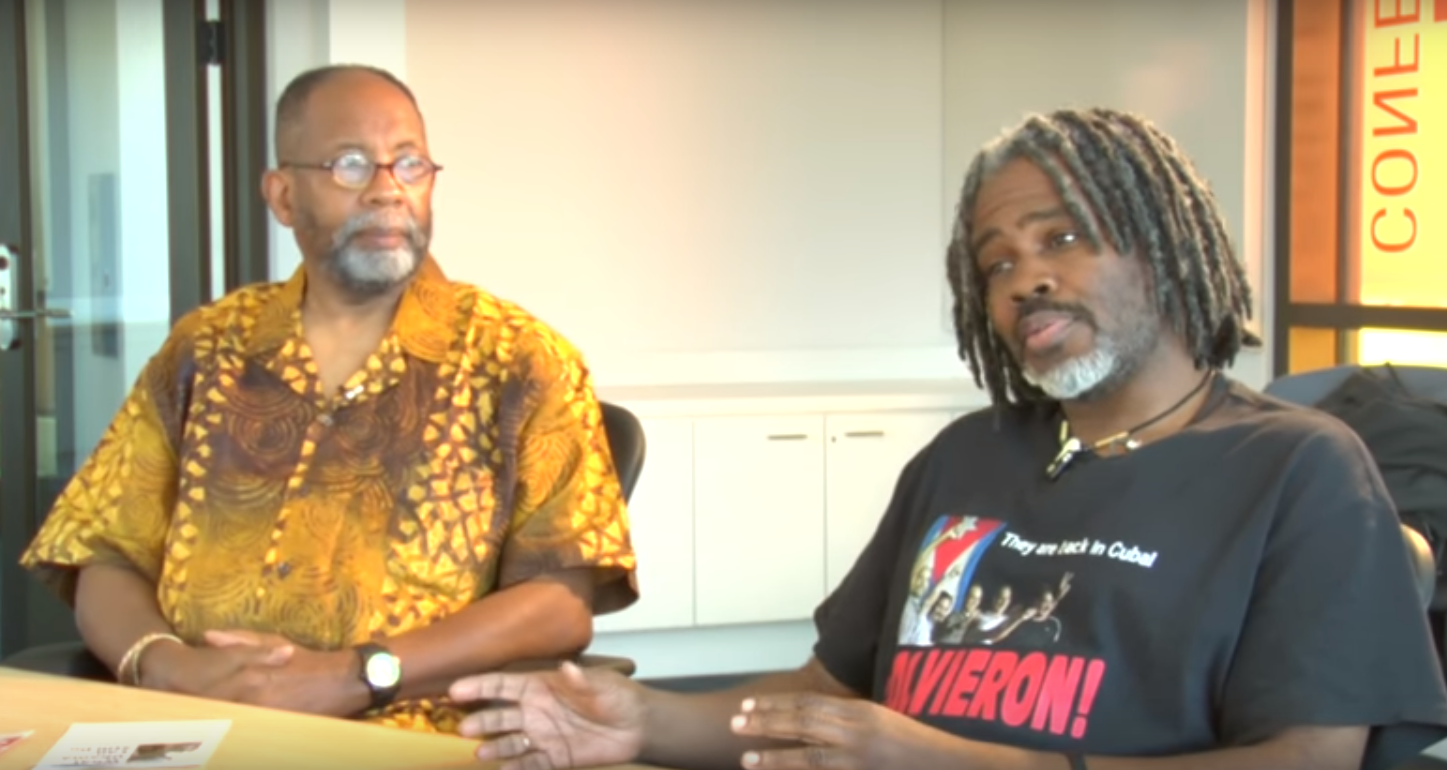“The real story is the strength of the Cuban people,” IPS board member James Early told CaribNation TV.
One year ago the United States restored diplomatic relations with Cuba. But in the 50 years of tremendous suffering brought on by the U.S., Cuba has transformed its nation and has been able to sustain its own independence and self determination, Early said.
The Cubans have not been afraid of entering into debates, Early said, but they have stressed that they must be respected and would not be forced.
There were many Americans that have pushed for normalization of relations with Cuba because they have seen the hypocrisy in U.S. policy, IPS events coordinator Netfa Freeman said.
“The U.S. has relations with countries that should be considered dictatorial, or have human rights violations, like Saudi Arabia,” Freeman said. “So people can see this and it [the blockade] has become a very unpopular position.”
Freeman said there are also forces that still want to influence or overthrow the Cuban revolution, but have realized the embargo was not successful in doing that, and think their sphere of influence will be enhanced by opening up diplomatic relations.
“The Cuban government was very gracious in welcoming an enemy,” Early said. “The U.S. government has been very clear that our policy to overthrow the Cuban socialist revolution has failed, it has isolated us in the international community, and now we must change that policy to achieve the same ends.”
The benefits of new diplomatic relations are yet to be seen, Freeman said, but we have a lot we can learn from Cubans particularly in the realms of healthcare and literacy.
“These are the kinds of things that people are challenged with in the inner cities in the United States,” Freeman said, in addition to how conversations around democracy and tackling the social ills of the day are facilitated.
Early notes that people can now travel more freely between the countries, we can do drug interdiction together, we can work on hurricane abatement issues together, and food exchange. The Cubans would also like to open markets for their advances in biotechnology. Cuba has some of the most educated people in the word, with its children outscoring many developed countries in science and math, Early said.
“This is a result of the will of the Cuban people to dedicate their energies toward social justice,” Early said. “Toward free education, free healthcare.
But, he notes, the Cubans are also aware of their economic errors, regardless of the effects of the blockade. “They’re very self critical about over-centralization and the need to set a context with these highly educated citizens to express their imagination and creativity as patriots, not only to advance their individual selves, but in solidarity wit their fellow citizens,” Early said.
The Cubans, he said, recognize their achievements and their errors as their own, and do not believe the U.S. has a right to impose its will on them from the outside.
Freeman said he thinks the meeting of President Obama and President Raúl Castro in March of 2016 was a terrific thing to happen. It solidifies the hearts and minds of Americans that there should be an opening of the relationship, and that it’s going to be much more difficult now for those who don’t want to see that happen, he said.
“But it also gave us a chance to see the reaction and response of the Cuban people. It exposed some of the double standards of the U.S. government when Obama said that Cuba should accept the United States as a model for Democracy,” Freeman said. “It gives people an opportunity to see what really is.”
Early said the Cubans are very clear that diplomatic relations are not the same thing as normalization of relations; that is something that can only occur with the ending of the blockade.
“The Cuban people are ready and willing to engage as equals, but with respect,” Early said. “So it is a step forward, but the battle continues.”
